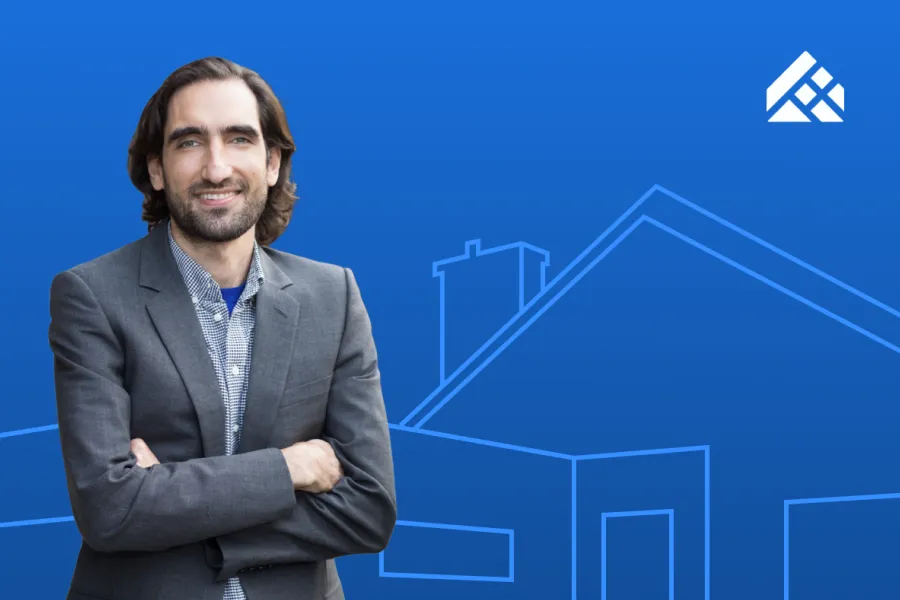
A Fan-Owned Soccer Team
How MNWOSO raised $1M from 3000+ fans to build the 1st community-owned women’s soccer team
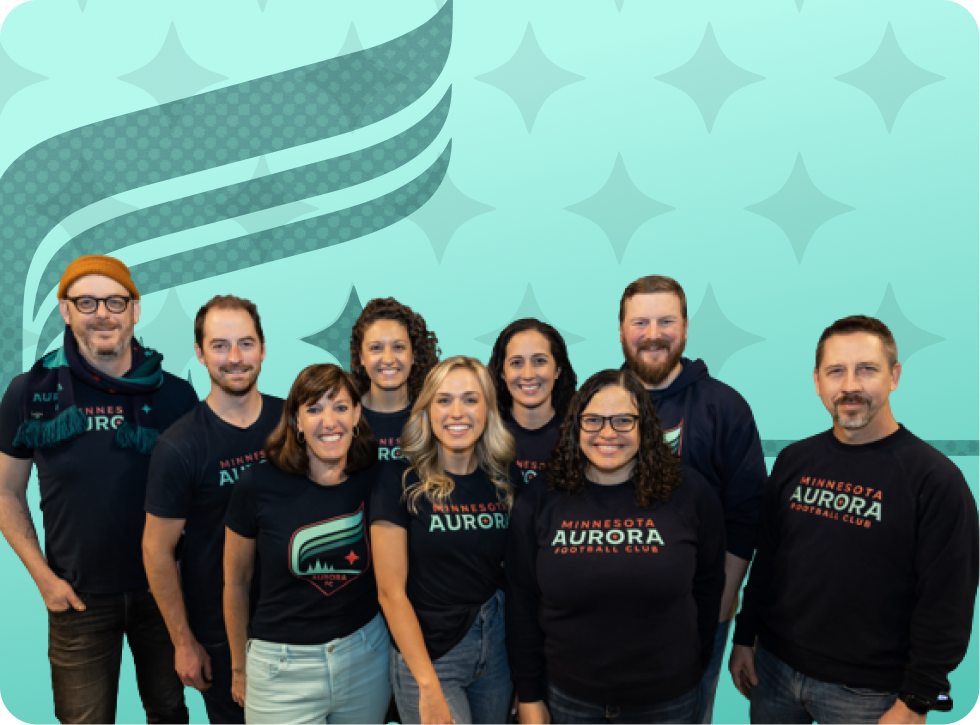
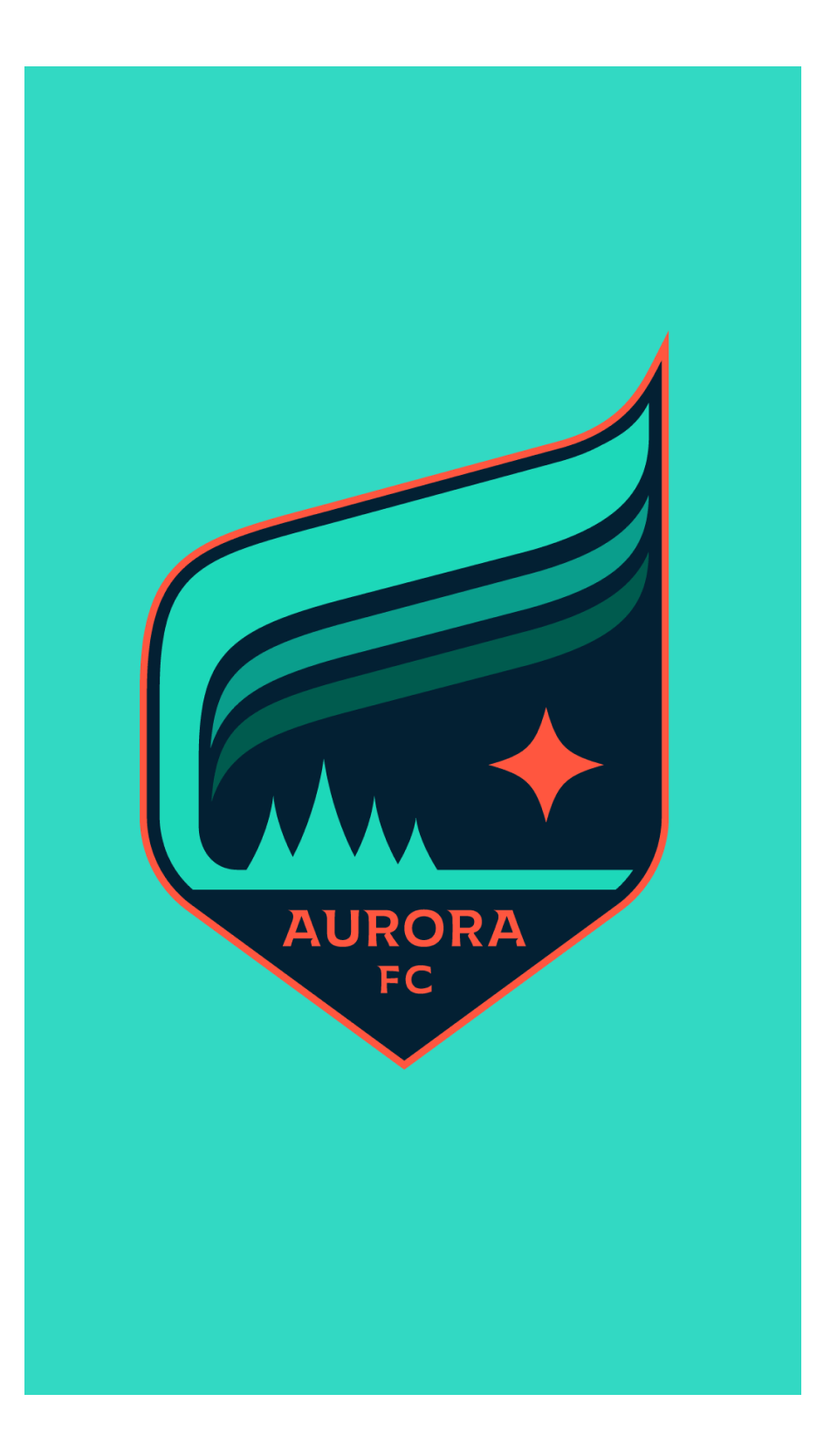
- US women’s soccer has exploded in popularity in the last 5 years, bringing stars like Megan Rapinoe to world fame.
- But, the world has yet to take women’s soccer seriously.
- What if people actually invested in women’s soccer as a professional sport, and not just something for little girls?
- This was the question that united 9 co-founders of what would become Minnesota Aurora Football Club…
- … which opened a Community Round to launch the nation’s 1st community-owned women’s soccer team…
- … and raised over $1,000,000 from over 3000 fans in 3 months.
- In its 1st year, Minnesota Aurora FC would outperform even professional soccer teams in merch sales, game turnout, and loyalty.
COMMUNITY-OWNED
We’ll have MNWOSO Co-Founder, Wes Burdine, take it from here →
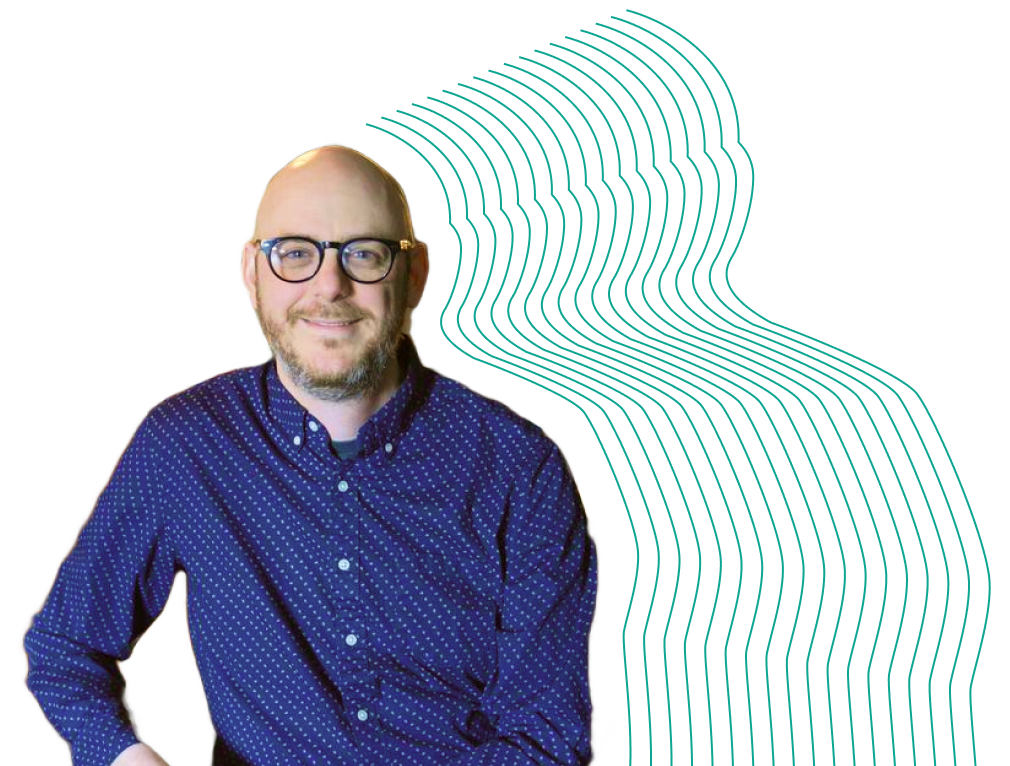
What is Minnesota Women’s Soccer (MNWOSO)?
Minnesota Women’s Soccer is a community-owned, women-led women’s soccer team in the Twin Cities of Minnesota.
We started in the beginning of 2020 with a gathering of 16 acquaintances on a brewery patio. A couple of us had been long dreaming about the idea of a community-owned women's soccer team. Each of us had some involvement with soccer in the Twin Cities. For example, I own a queer soccer bar—I’ve been organizing passionate soccer fans for over a decade.
We whittled down to nine founders, researching and planning together for a year. In 2021, we announced a team and raised a Community Round to bring it to life. Then in May 2022, we played our first game and had our first season.
Our goal is to be a professional team, but for now, we’re what’s called a pre-professional team. There are 12 professional women’s soccer teams in the US and 40 pre-professional teams that play in the USL W League. In both categories, we’re the first and only soccer team that’s community-owned.
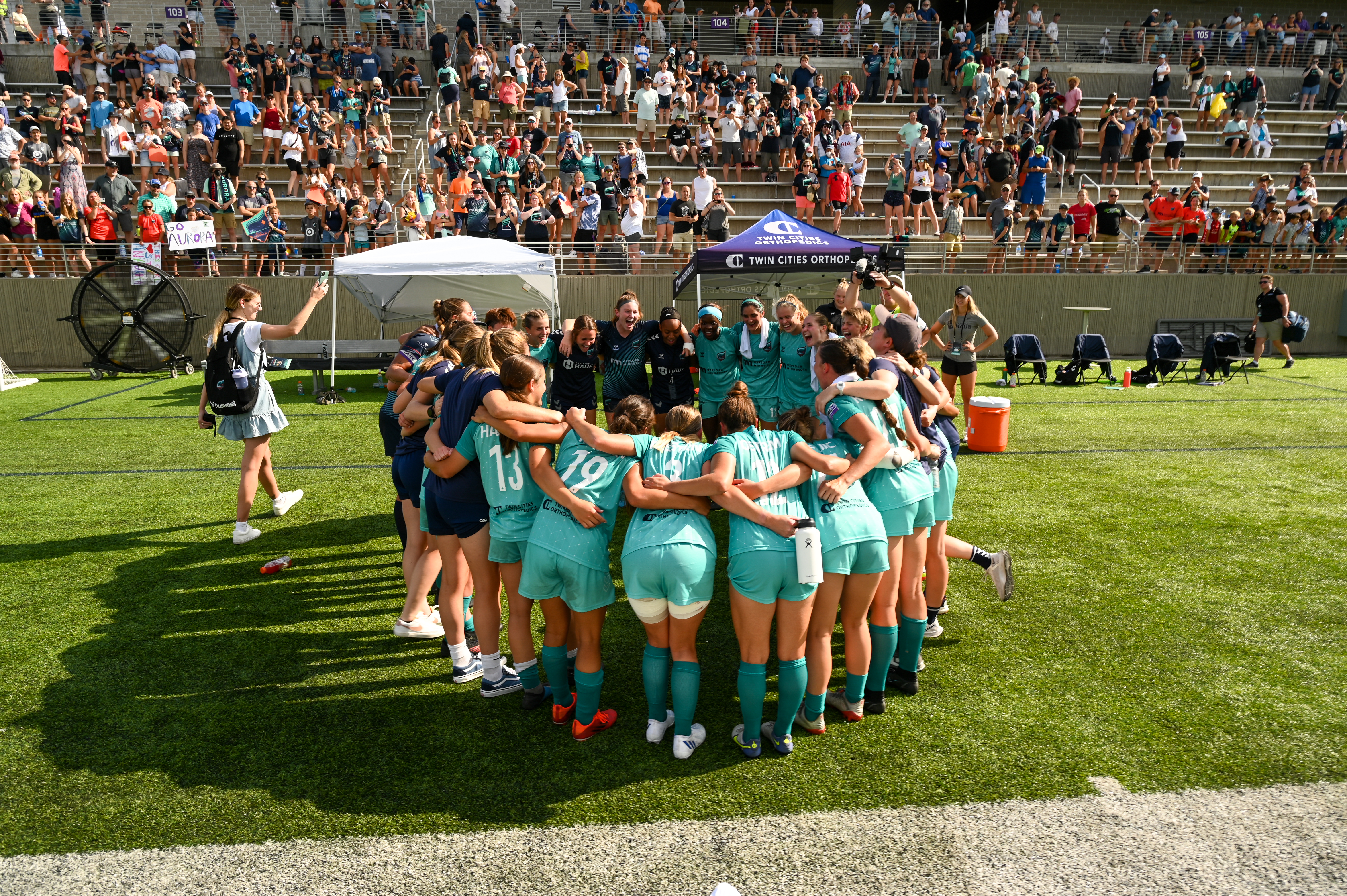
There are 12 professional women’s soccer teams in the US and 40 pre-professional teams that play in the USL W League. In both categories, we’re the first and only soccer team that’s community-owned.
Wes BurdineCo-Founder of MNWOSO
Why we decided to start a women’s soccer team
Soccer has a growing ecosystem in the Twin Cities. We've had a professional team here regularly since the early 90s. We have a successful men's team called Minnesota United FC. We have a lot of refugee communities here, whether it's East African or Hmong communities, in which soccer is really important. In the last six years, men's soccer has gone from a niche sport that draws 3000 attendees to a beloved sport that fills our stadium of 19,000.
Similarly, women's soccer has absolutely exploded. On the side of my bar, we have a massive mural with Megan Rapinoe at the last Women's World Cup celebrating. People like Megan Rapinoe are massive stars—they are Michael Jordan in terms of their level of fame.
Yet, a lot of women's soccer teams aren't able to capitalize on that popularity. Women's soccer has a niche, passionate fan base, but people with capital haven’t seriously invested in it or promoted it as a legit, cool entertainment option. Most people condescend to women’s soccer as "something for dads to take their daughters to," but they're just one part of the equation.
All of us founders of MNWOSO thought that we could create a different way of interacting with professional soccer, specifically women's soccer.
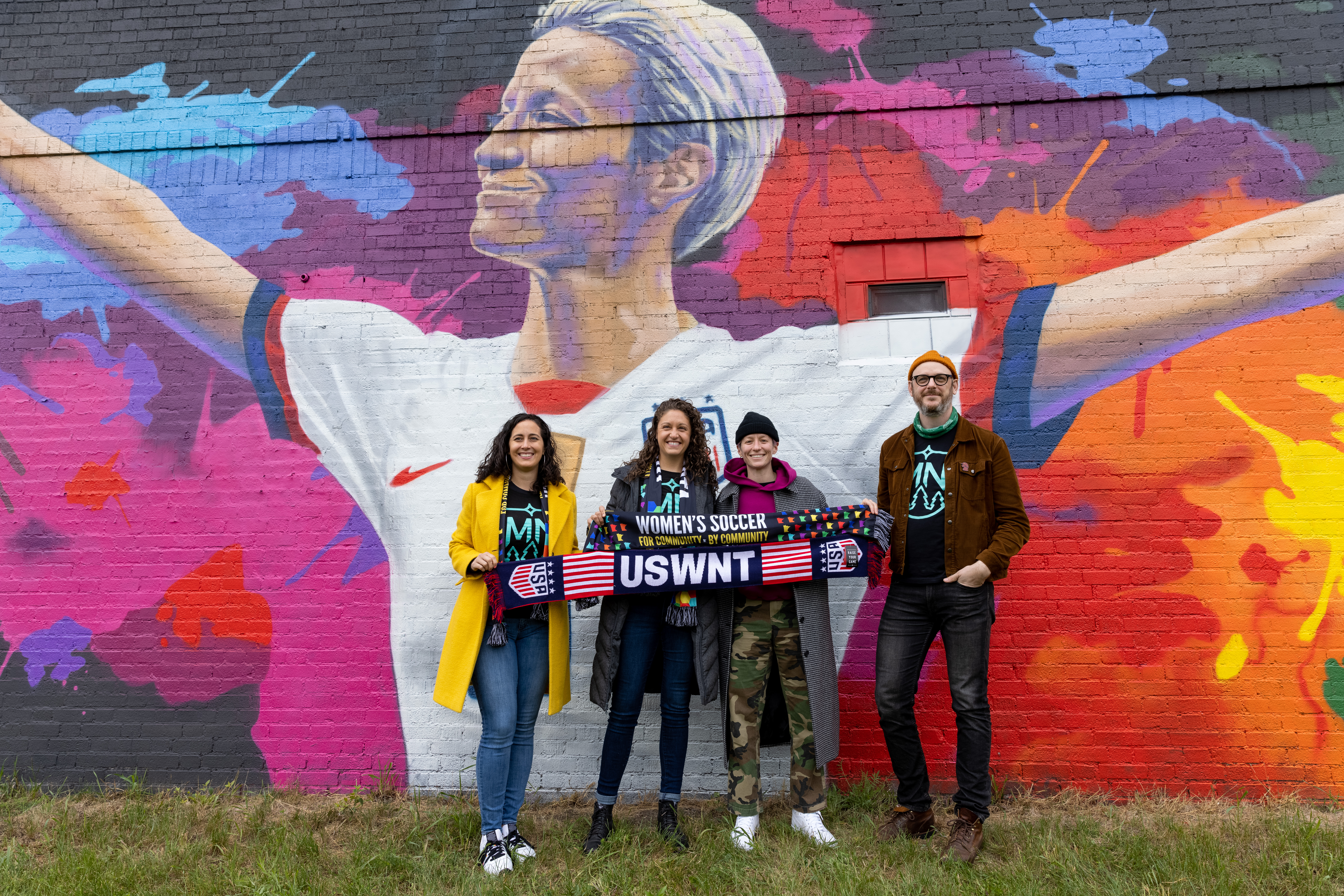
Fans are stakeholders—let’s actually give them stakes.
Wes BurdineCo-Founder of MNWOSO
Why we decided to raise a Community Round
It’s not that we formed a soccer team and then decided to do community funding—community funding was baked into our idea for the company from the start.
Normally a company dynamic is one-sided: I produce this thing, you pay me money and consume it. But that’s not quite how soccer works.
Soccer works with fans who build 80-foot-long banners that take weeks or months to paint and drop down at the beginning of a game (called tifos). Soccer fans sing for the entire 90 minutes of the game. When there's a corner kick, people stand up in Minnesota and wave their scarves. The game day live experience is far more dynamic and participatory than a typical baseball game or basketball game—players and fans create the event together.
We wanted an organizational and capital structure and a capital structure that memorialized that interaction. Fans are stakeholders—let's actually give them stakes.
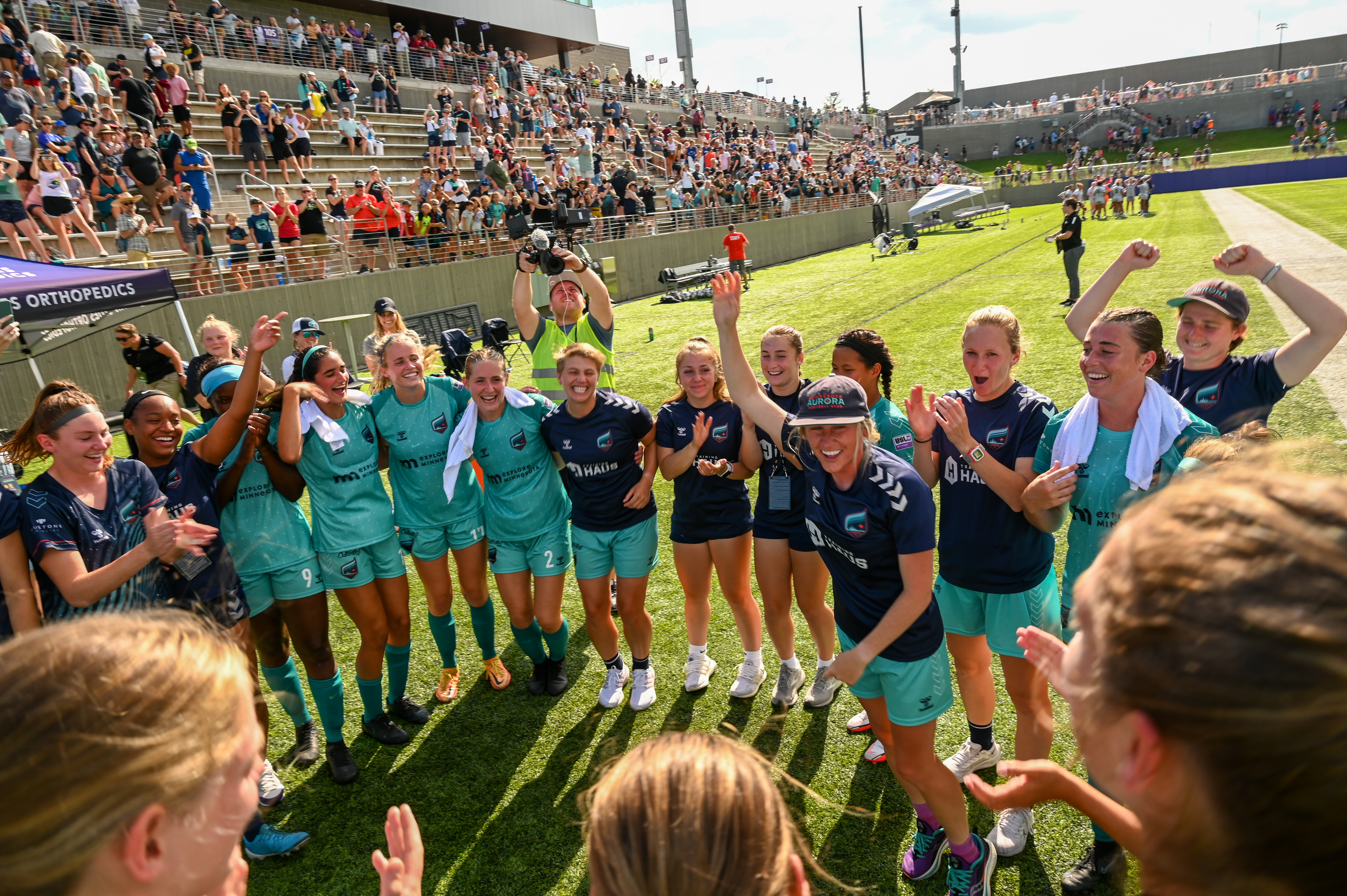
Our challenge was selling people on just a hope and a dream. Thankfully, in this space, there’s so few hopes and dreams that we got a lot of attention.
Wes BurdineCo-Founder of MNWOSO
How the round went
These were our original benchmarks: less than $300,000 would've been a failure, $500,000–$600,000 would've been a great success, and we could dream about anything above that.
Our challenge was selling people on just a hope and a dream. Thankfully, in this space, there's so few hopes and dreams that we got a lot of attention.
We got the word out about our Community Round on two completely different channels: local TV and Twitter.
Our current President Andrea Yoch had worked for years as a marketer for the local TV stations. I’ve worked in soccer journalism for over a decade. Both of us pulled out our contacts in the media and tried to make use of every single one of them.
We also promoted the Community Round in the Women’s Soccer (WOSO) world on Twitter: a niche but extremely passionate global community. People wanted to see something like this happen and they didn’t even know it. The idea caught fire there.
In the end, our 3080 investors came from 48 different states and 8 different countries. The average investment was $300. We were oversubscribed and had to turn away nearly $500,000 of investments, since we were capped at the amount we could raise.
The amount of investment was great; $1 million gives you a long runway. But for us, the number of community investors was even more important.
Wes BurdineCo-Founder of MNWOSO
Why did people invest?
The impact of our Community Round
Our audience sizes are unheard of. In our league, a typical audience is about 300 people. In the professional league, a typical audience ranges from 2,000 to 18,000 for new and exciting teams like Angel City FC in LA. Our team fills our stadium of 6,000 people, and we’re turning people away. We sold out our championship game in 18 hours. The idea of 6,000 people coming out for pre-professional soccer in the US is unheard of.
We put up merchandise sales of almost $750,000, which is up in the middle of the pack for professional men's teams. Marketing comes easily from our community owners. They’re our best evangelists. They want all of our merch so that they can go out and say, “This is something I'm a part of.”
Above all, we have a durable fan base. For example, we could have played badly in our first year, and people could have said, "Man, this team is not very good. Why should I spend money on season tickets next year?" Then they'd walk away.
But when you're bought into something, you're not just there for the immediate success. A durable consumer base is bought in literally to your long-term success.
The amount of investment was great; $1 million gives you a long runway. But for us, the number of community investors was even more important.
The benefits of community ownership are amazing from a business standpoint. More importantly, MNWOSO makes a difference in people's lives. Building real community among affinity groups is way more important than anything money can give us.
Now, professional teams call us up and ask how we did what we did. That is a complete joy. It makes us think, “Man, now that we've accomplished one season and we can hire all these other people, imagine how much more successful we can be when we’ve got more than just a part-time person shipping out all our merchandise?”
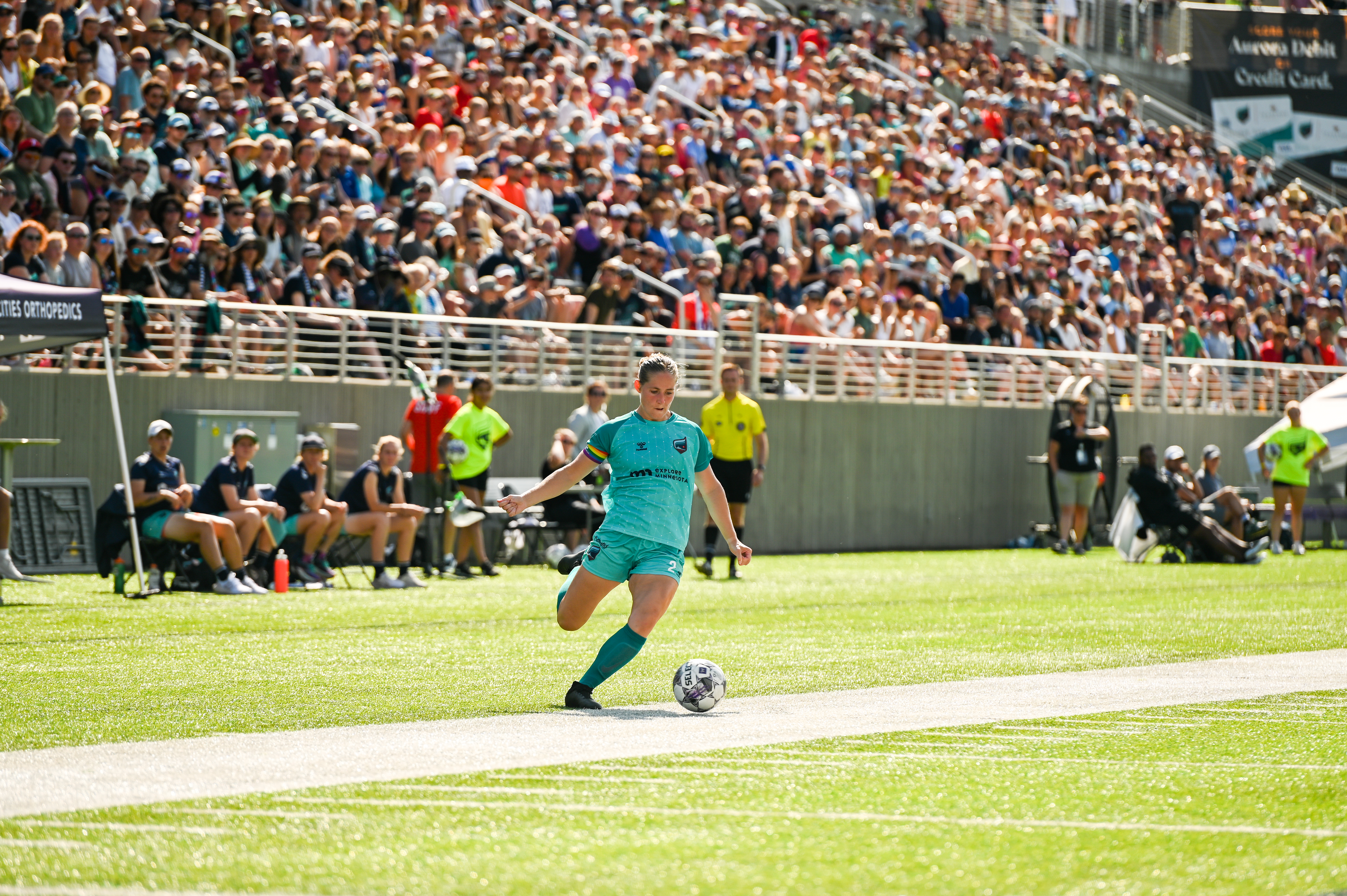
Marketing comes easily from our community owners. They’re our best evangelists.
Wes BurdineCo-Founder of MNWOSO
How we make community ownership real
Our community voted for the name of our team, Minnesota Aurora FC. We offered 14 names to our investors. They whittled it down twice. Then we presented them with three complete brand identities and said, "Vote on the final." That's how we got Minnesota Aurora FC. This led to a surge in investments, because people were already seeing the value in being an owner.
Our community owners also voted on our mascot, Rory or Aurora mascot. Again, we presented our community investors with three concepts, and they voted for the best option.
Lastly, our 3080 investors recently voted to elect two of our board seats. We took applicants for those seats exclusively from the community investors, and the candidates that we got were so impressive that at times we thought, “Man, this person could be our CEO.” Bringing in that expertise from the community helps make our board more diverse and more successful.
Summary
Minnesota Womens Soccer raised $1,000,000 from 3,080 investors during their Wefunder Community Round.
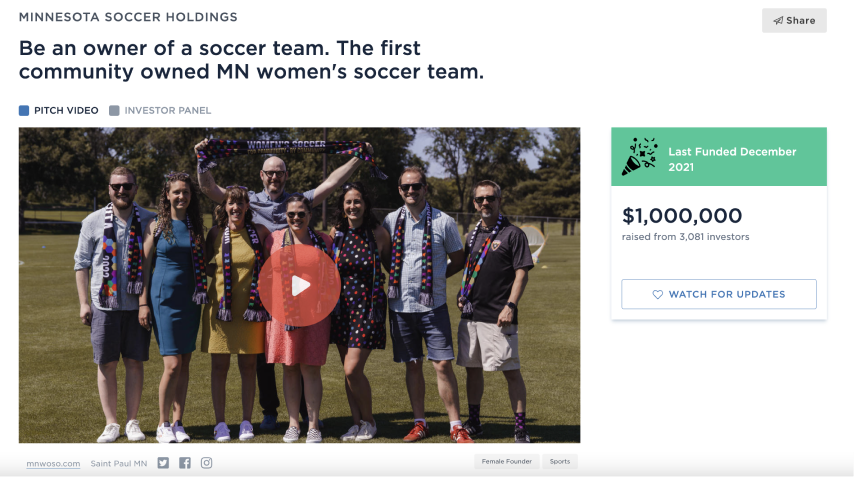
Snapshot of Minnesota Womens Soccer's Community Round (source wefunder.com/mnwoso)
The Raise
- 3,080 investors invested $1,000,000
- Started and finished raise in 3 months
- 56% of investors invested $100
- 85% of investors invested $500 or less
Fun Facts
- Allowed community investors to choose the name of the soccer team (Minnesota Aurora FC), leading to a surge in investments.
- Marketed the round primarily on local TV and women’s soccer communities on Twitter.














